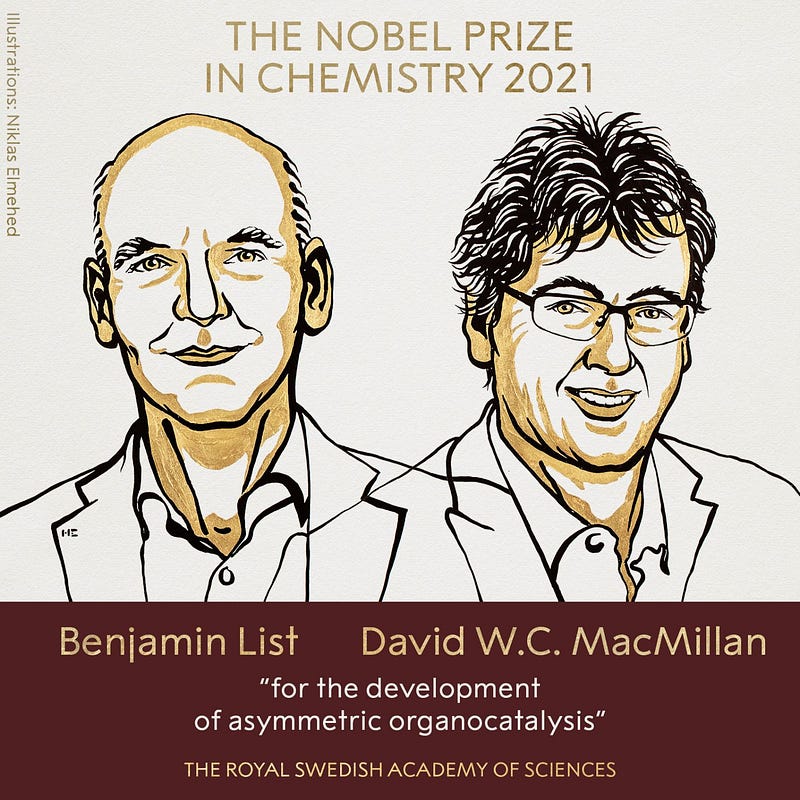The 2021 Nobel Prize in Chemistry: A Breakthrough in Catalysis
Written on
Overview of the 2021 Nobel Prize in Chemistry
The 2021 Nobel Prize in Chemistry was awarded to Benjamin List and David MacMillan for their pivotal discovery in organocatalysis, which introduced a new era of effective, simple, and environmentally friendly catalysts.

Understanding Catalysts
A catalyst is defined as a substance that accelerates a chemical reaction without itself undergoing any change. For instance, when an electric current decomposes water into hydrogen and oxygen, the inclusion of a small amount of platinum or rhodium powder significantly boosts the rate of hydrogen production.
Enzymes, another category of catalysts, are organic compounds that enhance reaction rates within the human body, making essential processes like digestion much more efficient.
Historically, the only recognized catalysts were metallic powders and complex organic molecules known as enzymes. This paradigm shifted in 2000, when List and MacMillan independently discovered small organic molecules capable of catalyzing reactions.
Section 1.1: Benjamin List's Contributions
Benjamin List explored the realm of catalytic antibodies. He demonstrated that the amino acid proline could effectively catalyze an aldol reaction, which involves the bonding of carbon atoms from distinct molecules. This innovative approach yielded immediate results.
Section 1.2: David MacMillan's Innovations
Conversely, David MacMillan focused on small organic molecules that featured an iminium ion (a carbon-nitrogen double bond). His findings illustrated that these molecules could easily facilitate a Diels-Alder reaction, further expanding the repertoire of catalysts available to chemists.
The Importance of Asymmetry in Catalysis
Both researchers' methods yield asymmetric molecules, which have distinct interactions with light. Chemists refer to this characteristic as 'handedness,' akin to the fit of a glove. One type of handedness is often beneficial, while the other may be less desirable. Thus, the availability of asymmetric catalysts that produce the desired outcomes is invaluable.
The Catalyst Revolution
Since their discoveries in 2000, advancements in organocatalysis have surged, resembling a gold rush. Both List and MacMillan have taken the lead in this field, developing numerous inexpensive and stable organocatalysts that can facilitate a wide array of chemical reactions. These innovations have resulted in some reactions being accelerated by as much as 7000 times, paving the way for the production of cost-effective and environmentally sustainable drugs and chemicals.
The first video provides an overview of the 2021 Nobel Prize in Chemistry and highlights the significant contributions made by the laureates.
The second video focuses specifically on Benjamin List’s achievements and his role in advancing the field of chemistry through organocatalysis.